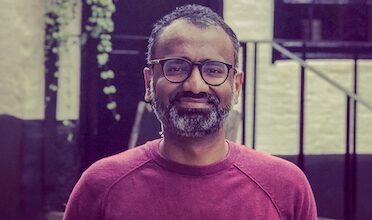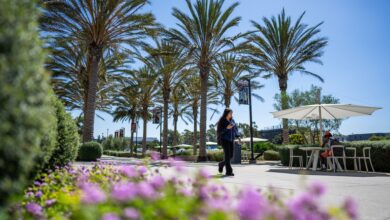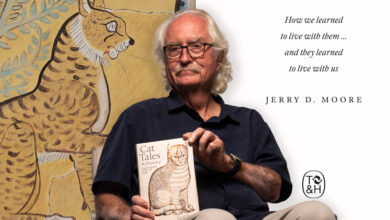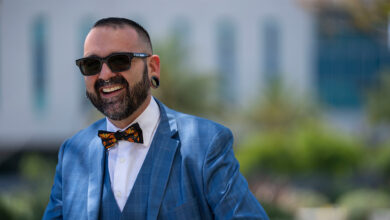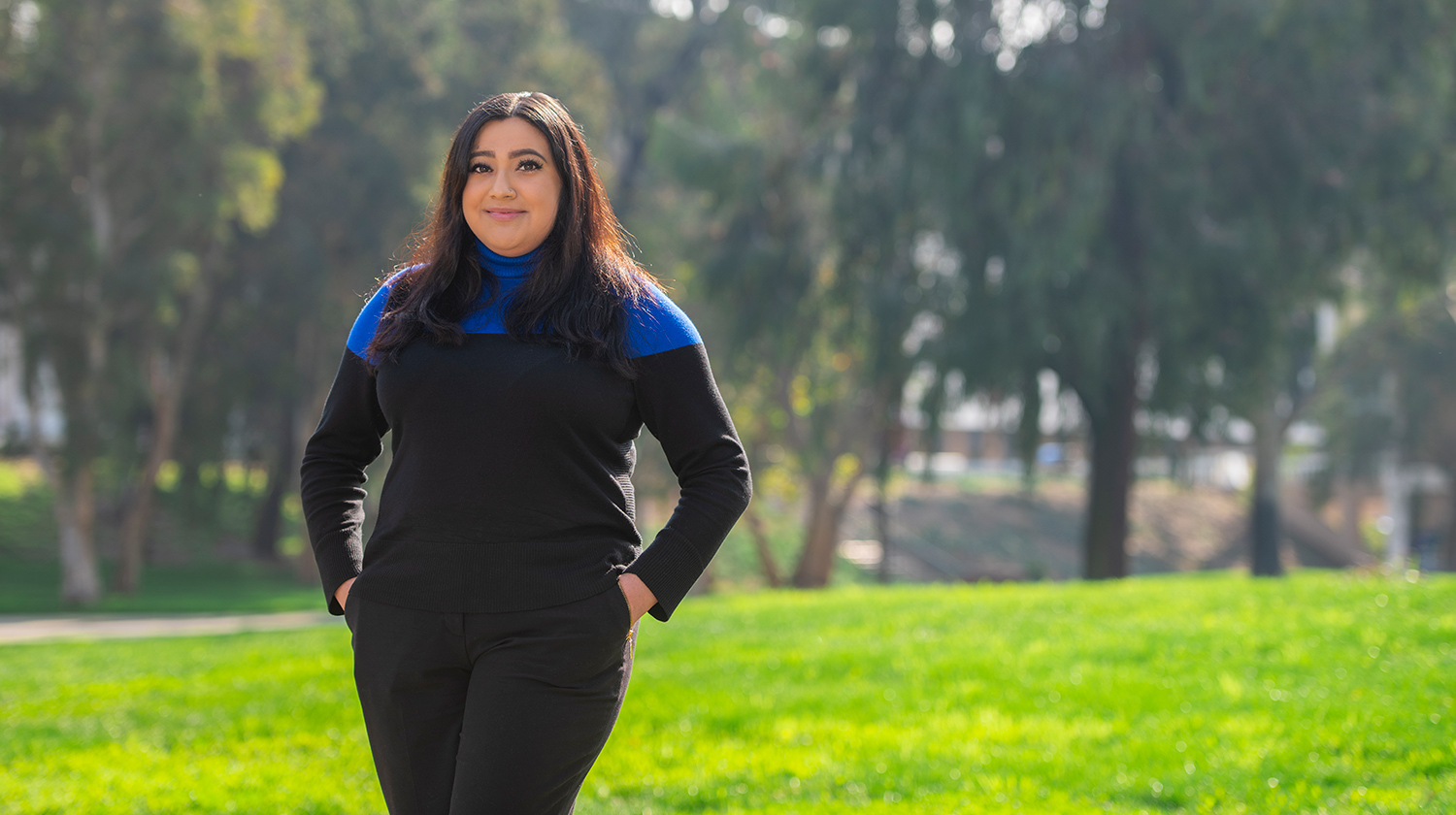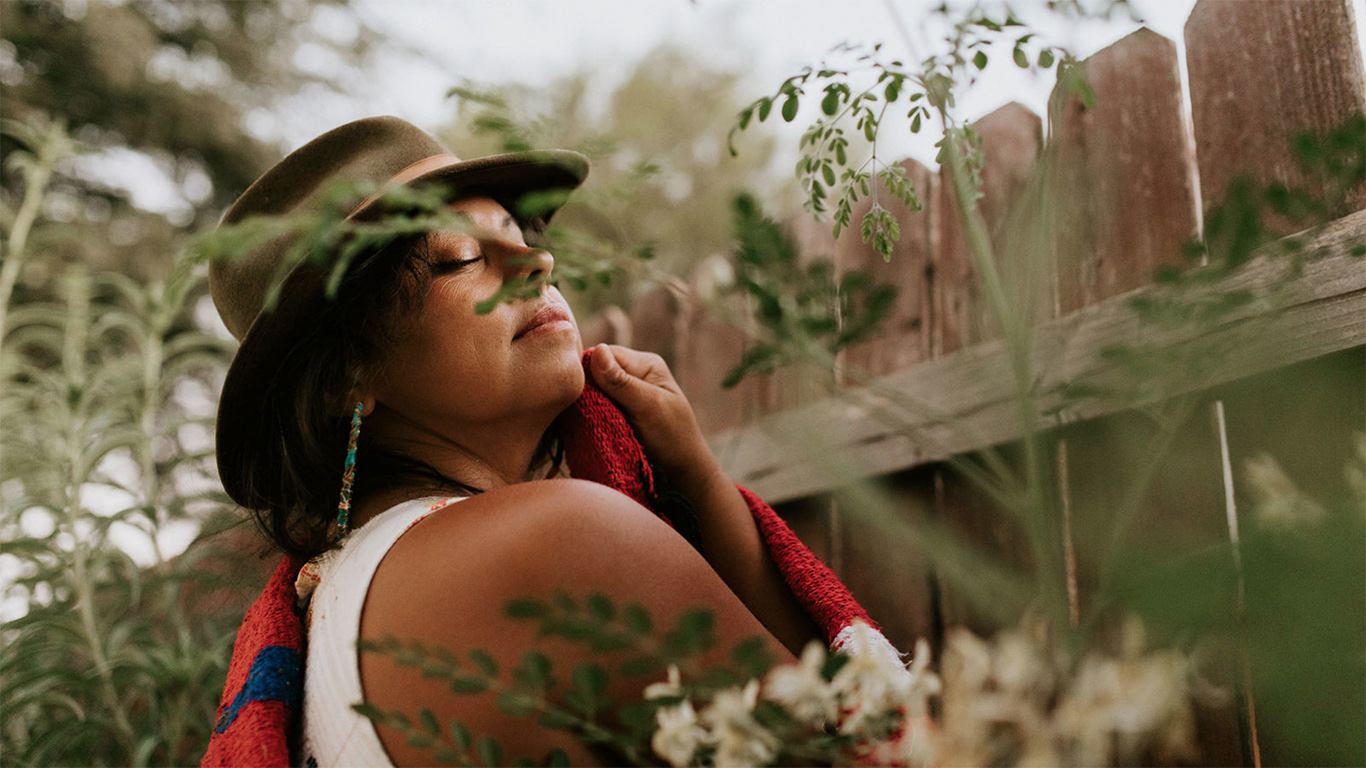
When Cristina Rose (Smith) is teaching, she doesn’t just lecture while students jot down notes. Rather, Rose acts as an active and engaging facilitator of conversation – letting students take the lead in their own discoveries.
Rose, who has taught in the CSUDH Women’s Studies program since 2014, describes herself as relational and feminist in her teaching approach. Her pedagogy is “less about having the answers, and more about asking the questions that will bring us into fuller lives,” she says.
“I share my life and who I am with students. It feels like I am actively part of this community. I think from here, I am from here, and this is my home.”
That passion for connection has earned Rose the 2021 Catherine H. Jacobs Outstanding Faculty Lecturer Award, which recognizes faculty who demonstrate excellence in teaching effectiveness, and acknowledges the role non-tenure track lecturers play in student success and the campus community as a whole.
“This award was a great reminder for me as to why I’m in this field: for our students, our community, and this university,” Rose says. “I am committed to the work we are doing here collectively.”
A fourth-generation Angeleno and first-generation college student, Rose has roots in the CSU. She has previously lectured at CSU Long Beach, where she also earned her Master’s degree in English Literature. She then went on to pursue her Ph.D. in Philosophy and Religion from the California Institute of Integral Studies, concentrating on Women’s Spirituality.
One of her most popular classes at CSUDH, “The Witch in Literature,” typifies Rose’s interdisciplinary style. The course, which examines literary representations of witchcraft in different historical periods and cultures, gives students a chance to “view the witch from a decolonial and feminist perspective,” she says.
Rose also takes her subject matter beyond the classroom. She uses social media and online platforms to better motivate and reach students, most notably through the Las Doctoras podcast. Co-hosted by Rose and CSULA lecturer Renee Lemus, the podcast informally covers topics ranging from body politics to race, gender, and spirituality.
“We’re tapping into the gifts we learned through teaching and the conversations we have at the university,” Rose says. “This is a free, accessible platform for our community in a roundtable style.”
Outside of her classes and projects, Rose credits fellow faculty members for further enriching her experience in academia. Soon after she began lecturing at CSUDH, Rose found meaningful kinship with other faculty who were also mothers of color. Programs such as the Faculty Development Center’s Women of Color Retreat further affirmed Rose’s sense of belonging.
“Even if a retreat is just to create space for ourselves, for our writing, for our research, or for our passion, it’s important for us to have that space,” Rose says. “That is why these connections with faculty are priceless for me.”
Rose says that the late professor Raúl Vega Romero is another particularly memorable and endearing presence for her. “He was of the mind that you are always welcome here, and the passion he brought for me and the students was such an inspiration,” she says.
For Rose, those relationships fostered on campus are among the best aspects of being at CSUDH.
“It is both the faculty and the students here who are the biggest draw. They speak with so much heart and intention.”



